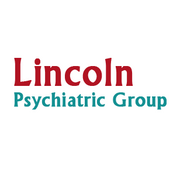
Many individuals who experience traumatic loss brave the aftermath on their own. While everyone heals in their own way, therapy helps countless people after loss. Although it won’t erase your grief entirely, it may help you find coping methods that make life easier. Discover some benefits of this type of counseling below.
How Grief Counseling Can Help
1. Work Through Grief in a Safe Environment
Sometimes, it can feel like the world expects you to pick up and continue living after losing a loved one. In therapy, however, you have the time and space you need to go through the grieving process without judgment. A counselor can help you through the various stages of grief with support and understanding.
2. Learn to Recognize & Understand Your Feelings
 The emotions you experience after losing someone you care about can be confusing. Along with extreme sadness, you might experience anger, guilt, and a combination of other feelings. A counselor can help you recognize these emotions when they arise and understand what triggers them. Validating your emotions is a cathartic process that supports healing.
The emotions you experience after losing someone you care about can be confusing. Along with extreme sadness, you might experience anger, guilt, and a combination of other feelings. A counselor can help you recognize these emotions when they arise and understand what triggers them. Validating your emotions is a cathartic process that supports healing.
3. Develop Strategies to Resume to Everyday Life
After a loss, even the most mundane tasks may feel overwhelming. While the pain may never go away entirely, therapy can be useful for helping establish positive behaviors that help you get back into a routine again. These strategies may be beneficial for your work and social life.
Whether you’ve experienced loss or have another mental health concern, the team at Lincoln Psychiatric Group can help. Serving the Lancaster County, NE, community, this practice has helped locals for more than 75 years. Their specialists take an individualized approach to helping people overcome life’s challenges and develop a tailored treatment plan. Schedule a therapy appointment by calling (402) 475-7557 or by sending their practice a message online.
About the Business
Have a question? Ask the experts!
Send your question

